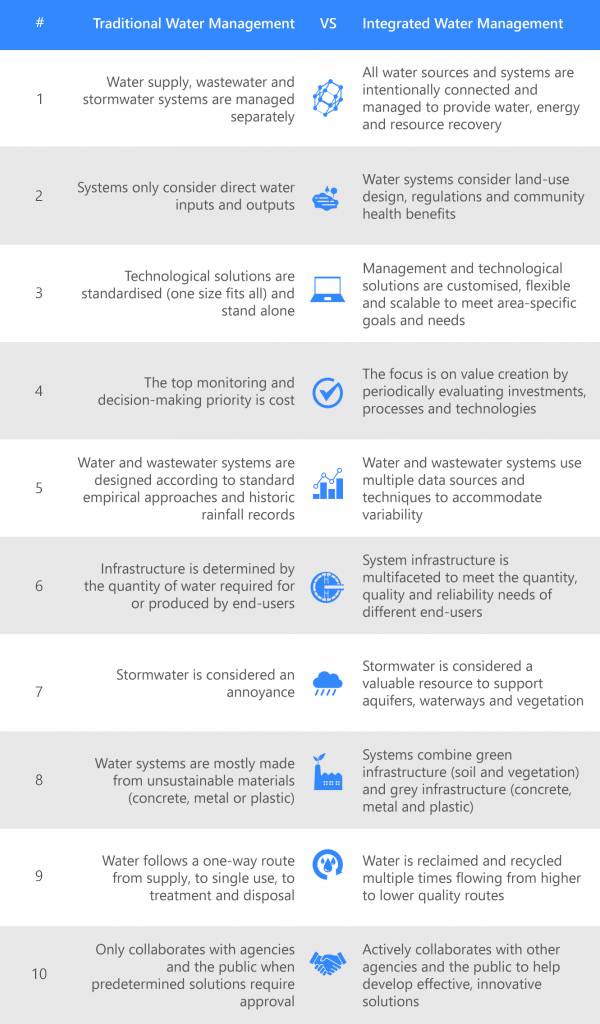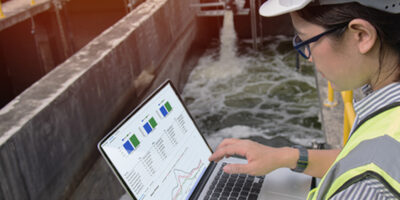Urban utilities today face increasingly complex water supply challenges that require new ways of planning, evaluating and investing in various solutions. However, research and real-world experiences over the past decade signify that an integrated urban water management (IUWM) approach could be the key to solving these challenges.
The transition away from traditional water management styles is already underway in and beyond cities. In fact, an IUWM approach aligns with Goal 6.5 of the United Nations Sustainable Development Goals (SDGs), which indicates UN member states should implement integrated water resources management at all levels by 2030. Even the Water Action Hub tracks and promotes different organisations and projects around the world pursuing an IUWM approach.
But how does IUWM differ from the way we mainly manage water today?
Comparing traditional and integrated urban water management approaches
The primary distinction between traditional approaches and IUWM is how IUWM reframes a city’s relationship to water and other resources. IUWM reconceptualises the ways in which we see and use water resources. It also uses new, sustainable tools and technologies to better understand these resources and exploit their multi-faceted benefits.
A policy brief by Global Water Partnership describes IUWM as an approach that integrates water supply, sanitation, and storm- and wastewater management with land use planning and economic development. But IUWM is so much more that.
Traditional vs. an integrated urban water management approach
If you’re willing to implement IUWM, and want to understand or communicate the differences and benefits of an IUWM approach, consider these:

Sources: Moddemeyer, 2010; Pinkham, 1999; Bahri 2012Out with the old and in with the integrated
There is no questioning that IUWM provides more benefits to water utilities and to the communities they serve than traditional approaches. An IUWM approach can help utilities develop more robust water systems that meet their needs now, and in the uncertain and ever-expanding urban future. However, IUWM can be difficult to adopt, and the feasibility questions of alternative water supplies remain. Want to explore more? Discover three ways that can help you advance urban water management.
To address today’s biggest urban water challenges like drought, degraded water quality, reliance on imported water and population growth, IUWM can help you address them all and focus on what really matters: protecting public health.








